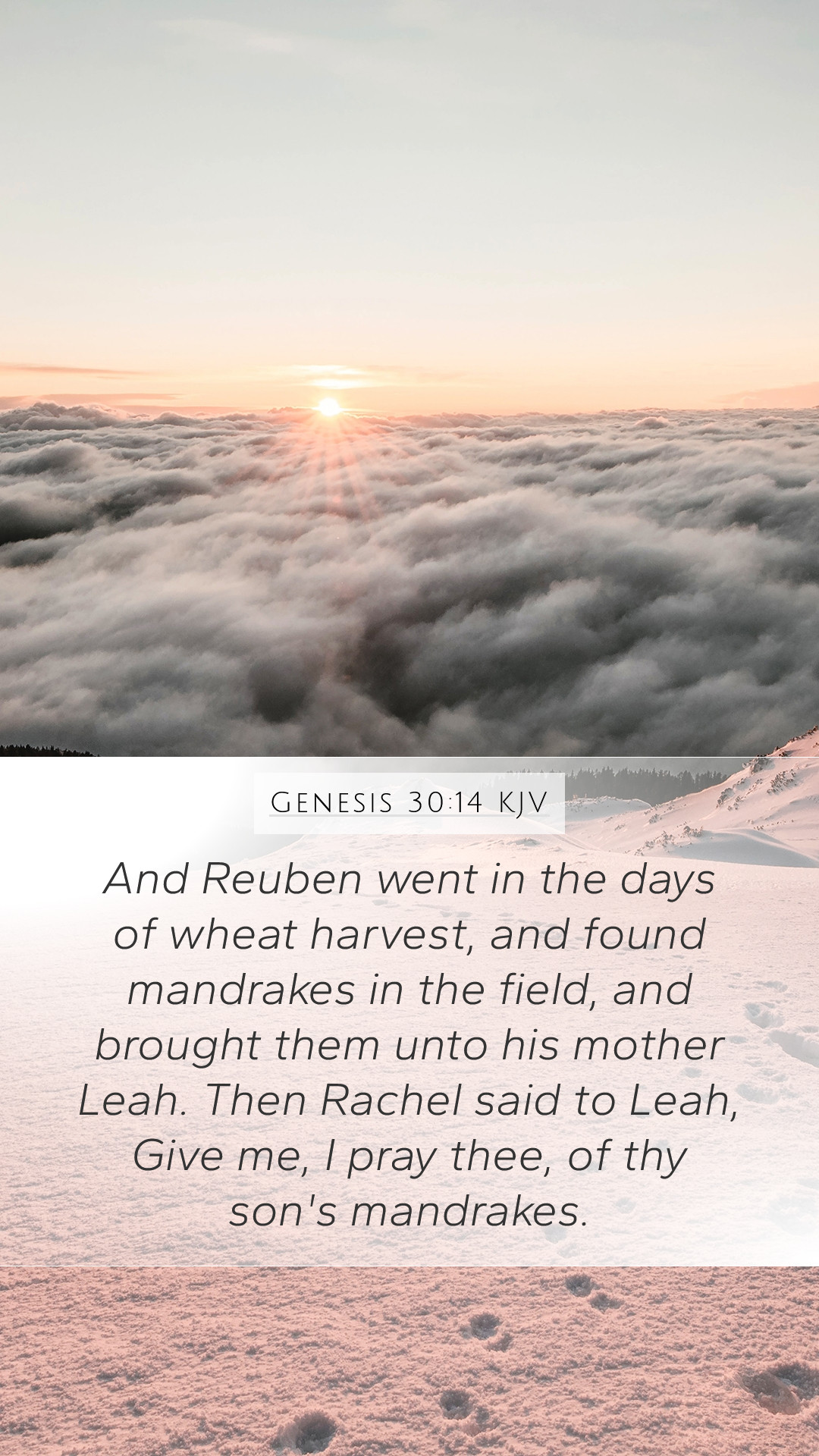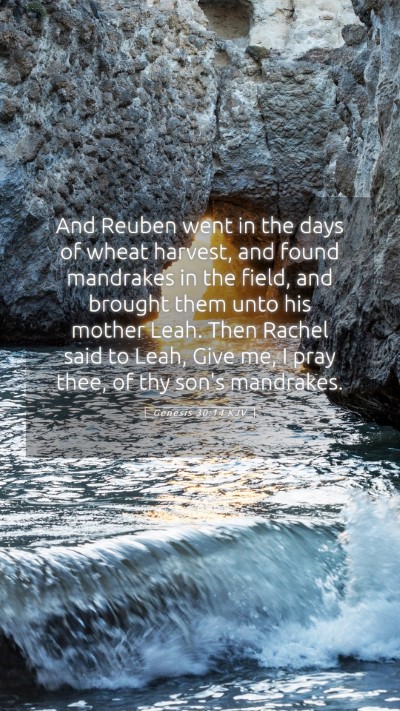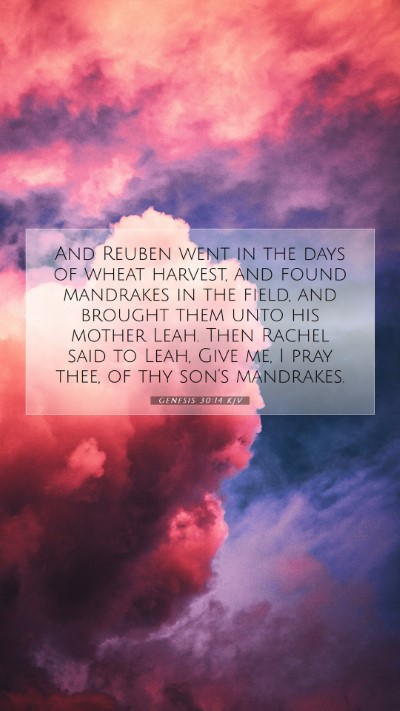Bible Verse Explanation: Genesis 30:14
Genesis 30:14 states:
"And Reuben went in the days of wheat harvest, and found mandrakes in the field, and brought them unto his mother Leah. Then Rachel said to Leah, Give me, I pray thee, of thy son's mandrakes."
Understanding the Context
This verse presents a moment in the lives of Jacob and his two wives, Leah and Rachel, highlighting the complexities of their relationships and their desire for children. The story reflects themes of jealousy, rivalry, and human desire.
Insights from Commentaries
Matthew Henry Commentary
Matthew Henry emphasizes the significance of the mandrakes, often associated with fertility. In the ancient context, they were believed to possess special properties that could aid conception, making Rachel's request a poignant point of desperation in her life. The rivalry between Leah and Rachel is underscored by this transaction, revealing deep-seated familial tensions.
Albert Barnes Commentary
Albert Barnes offers an analysis of how mandrakes were viewed at the time and remarks on the cultural significance of these plants in relation to fertility. He notes that Reuben's actions reveal both innocence and a child-like spirit in the midst of family struggles. This verse also highlights Leah's position as she holds the power in this exchange, fostering a sense of ownership over fertility within the family dynamics.
Adam Clarke Commentary
Adam Clarke provides historical context, explaining the practice surrounding the use of mandrakes in ancient Israel and their perceived magical attributes. He comments on the desperate situation of Rachel, who feels inferior to Leah despite being Jacob’s favorite. This psychological tension adds a layer of complexity to the narrative, as it demonstrates how deeply personal desires can lead to conflict.
Thematic Analysis
- Desire and Rivalry: The need for children drives both women to desperate measures, encapsulating human desires and the desperate lengths to which individuals will go for fulfillment.
- Family Dynamics: The verse encapsulates the tension within Jacob’s family, reflecting on broader themes of favoritism and sibling rivalry.
- Cultural and Historical Influences: Understanding the significance of mandrakes in ancient culture adds depth to interpreting the desires of Rachel and Leah, indicating how cultural beliefs shape individual actions.
Bible Verse Meaning Summary
The essence of Genesis 30:14 is a confluence of desire, rivalry, and the quest for identity and validation within a familial structure. The mandrakes symbolize hope for fertility, while the interactions capture profound emotions that transcend time, remaining relatable even today.
Application in Daily Life
For modern readers, the themes in this verse encourage reflections on how deeply-held desires can affect relationships. It serves as a reminder of the importance of communication and understanding in familial relationships, as well as the need for compassion amidst rivalries.
Cross References
- Genesis 29:31-35: The birth of Jacob's children and Leah's struggle for Jacob's love.
- Genesis 30:1-2: Rachel's desperate plea for children highlighting her feelings of inadequacy.
- 1 Samuel 1:6-7: Hannah's similar plight regarding fertility and her emotional struggles.
Additional Thoughts on Interpretation
This brief analysis of Genesis 30:14 aligns with broader Bible study insights that enrich Bible verse understanding and provide context for Scripture analysis. As readers engage with the text, it is essential to utilize Bible study resources that aid in deciphering complex narratives. Exploring areas such as historical context of Bible verses or understanding difficult Bible passages can enhance one’s grasp of the meaning of Bible verses like this.


